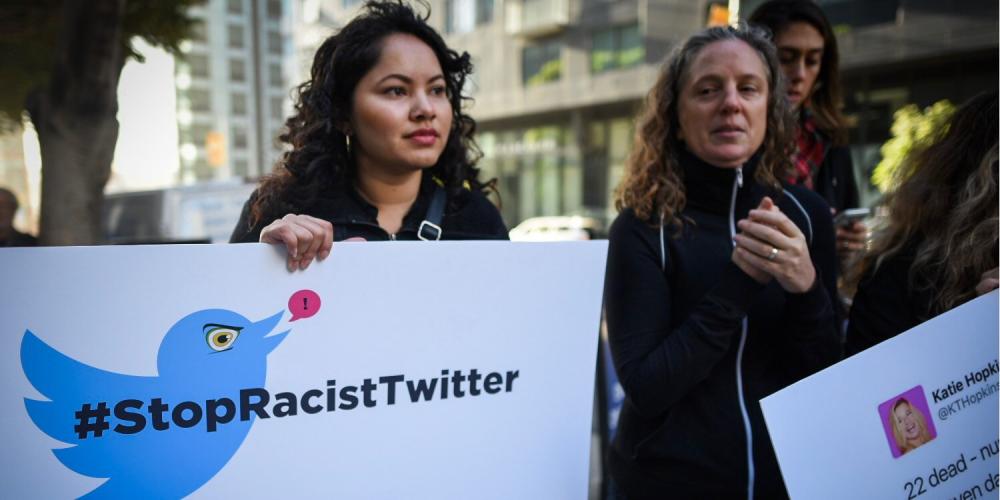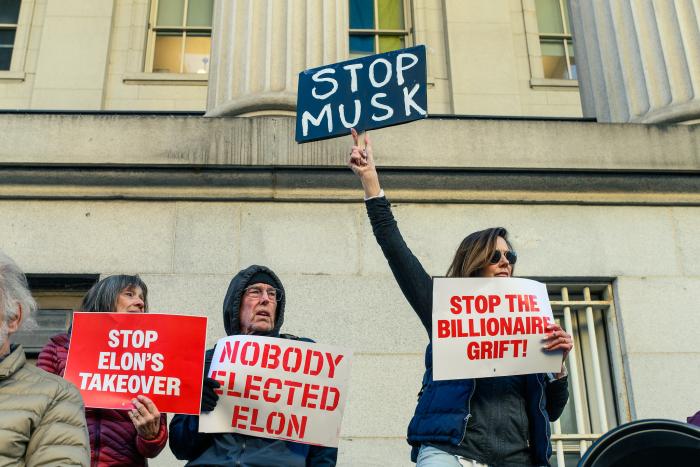New Free Press Study Reveals Social-Media Company Missteps on the Eve of the U.S. Election

WASHINGTON — On Friday, Free Press released a comprehensive analysis of online platforms’ performance in advance of next week’s general election. Among other findings, Tracking Platform Integrity on the Eve of the Election reports that the “Big Lie” narrative, which was prevalent across social media in the wake of the 2020 election, persists today — though with added and increasingly worrying elements.
“Rigorous fact checking is in decline both online and at many traditional news outlets,” write Nora Benavidez and Timothy Karr, the co-authors of the analysis. “AI tools have given online bad actors the free and unfettered ability to create fake content faster than ever, while platform algorithms enhance the delivery of this content with laser-like precision to users who might be uniquely vulnerable to the message.”
Tracking Platform Integrity updates earlier Free Press reports on the election accountability of the most popular online platforms, including Facebook, Instagram, TikTok, X and YouTube. Free Press has met with representatives of many of these platforms — including meetings withTikTok and X earlier this week.
In April, a Free Press-led coalition of more than 200 civil-society organizations issued six specific recommendations to 12 platform companies. The recommendations included reinstating election-integrity policies, better enforcing policies across languages and staffing up critical trust and safety teams. The coalition also called on these platforms to enable civil-society oversight of their enforcement practices, prohibit the misleading use of deepfakes in political ads and hold VIP accounts to the same standards as regular accounts. The platforms’ responses guided the new Free Press analysis.
The study shows that the online landscape is worse in 2024 than in previous election cycles. Several dynamics mark the present moment:
- The platforms have adopted a posture of avoiding dialogue and accountability: With few exceptions, the election-integrity problem has worsened since a 2023 Free Press research report found that the largest and most widely used platforms — Meta, X and YouTube — were backsliding on commitments they made in the wake of the 2020 elections, as Big Lie content overwhelmed much of social media. To make matters worse, these three companies frequently dodged requests from outside parties seeking accountability.
- The largest services have depoliticized their feeds instead of engaging in thorough content moderation: Recent reporting and research indicate a trend of declining social-media engagement on public posts that provide useful information about voting. This trend has been most extensively documented on Meta-owned platforms, including Facebook, Instagram and Threads, that have hundreds of millions of users in the United States.
- Inadequate political-ad disclosures and enforcement persists: Online political-ad expenditures in 2024 are higher than in any previous cycle — and many of these ads call into question the veracity of these companies’ enforcement policies. For example, there are hundreds of online political ads spreading the widely disproved conspiracy theory that noncitizens were voting in the runup to Election Day.
- Elon Musk is giving extra oxygen to lies on X, including his own: Since purchasing Twitter two years ago, Musk has transformed the platform into a megaphone for election-disinformation superspreaders: Despite its occasional willingness to engage in discussions with Free Press and its allies, X still has no interest in curtailing the spread of lies about the upcoming election.
- Independent researchers are finding it increasingly difficult to access platform data: Meta shut down social-media monitoring tool Crowdtangle just four months before the U.S. elections against the urging of researchers, civil society and bipartisan members of Congress. X has increased the cost of API access; it now runs about $42,000 a month to download the platform’s data.
Free Press Senior Counsel and Director of Digital Justice and Civil Rights Nora Benavidez said:
“We’re days away from the U.S. elections and instead of bolstering integrity and preparedness plans, social-media companies are continuing their retreat from previous commitments. Over the past year, Free Press has regularly reached out to the largest platforms to discuss whether they plan to safeguard the democratic process. While many have responded to our requests — and seem sincere during our discussions — their answers have given us little confidence that platforms are prepared to confront the deluge of online election disinformation and incitements to political violence.
“In general, we’ve found the platforms retreating further from basic user and democracy protections. Meta has begun downranking voter information, including useful and critical content about the democratic process. X has continued to force Musk’s many election lies on users, whether they follow him or not. And YouTube has entirely washed its hands of accountability, refusing to respond to repeated questions from Free Press, our research allies or investigative reporters.
“Musk may not care that X has lost nearly 80 percent of its value and many of its major advertisers since he took over the platform. But the other platform owners must recognize that such a reckless approach to content moderation is bad for business and perilous for our democracy.”
Free Press Senior Director of Strategy and Communications Timothy Karr said:
“The final weeks of the U.S. election have become a Wild West of platform backsliding and unpredictability. With more and more people in the United States using social networks as a source of news and information about voting, it falls on companies like Google, Meta and TikTok to stop recycling widely disproved lies about the democratic process. Billions of dollars in political advertising is underwriting this deception, subsidizing platforms’ delivery of hyper-partisan conspiracy theories to users. Elon Musk spreads his lies across X so widely that even the millions of U.S. users who don’t follow him get exposed to his inciteful, dishonest and bigoted rhetoric.
“Platforms are not doing nothing, but what they are doing is insufficient. These companies’ inconsistencies in enforcing their own political-ad policies indicates that they’re putting profits over the safety of their users. This approach warps the fundamental role of the media in a democracy, inhibiting every citizen’s ability to accurately inform themselves about issues and candidates as they prepare to vote.”




